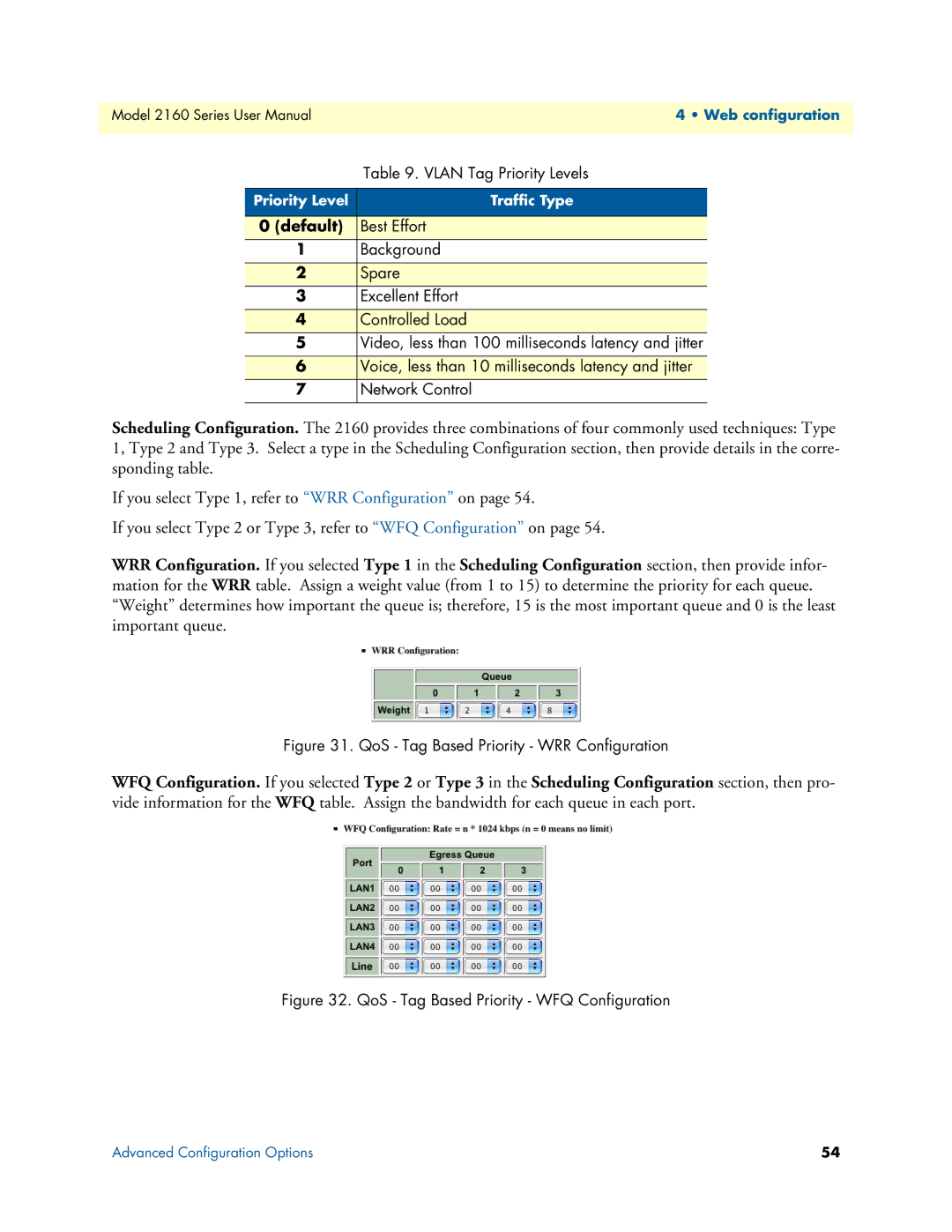
Model 2160 Series User Manual4 • Web configuration
| Table 9. VLAN Tag Priority Levels |
|
|
Priority Level | Traffic Type |
|
|
0 (default) | Best Effort |
1 | Background |
|
|
2 | Spare |
3 | Excellent Effort |
|
|
4 | Controlled Load |
5 | Video, less than 100 milliseconds latency and jitter |
|
|
6 | Voice, less than 10 milliseconds latency and jitter |
7 | Network Control |
|
|
Scheduling Configuration. The 2160 provides three combinations of four commonly used techniques: Type 1, Type 2 and Type 3. Select a type in the Scheduling Configuration section, then provide details in the corre- sponding table.
If you select Type 1, refer to “WRR Configuration” on page 54.
If you select Type 2 or Type 3, refer to “WFQ Configuration” on page 54.
WRR Configuration. If you selected Type 1 in the Scheduling Configuration section, then provide infor- mation for the WRR table. Assign a weight value (from 1 to 15) to determine the priority for each queue. “Weight” determines how important the queue is; therefore, 15 is the most important queue and 0 is the least important queue.
Figure 31. QoS - Tag Based Priority - WRR Configuration
WFQ Configuration. If you selected Type 2 or Type 3 in the Scheduling Configuration section, then pro- vide information for the WFQ table. Assign the bandwidth for each queue in each port.
Figure 32. QoS - Tag Based Priority - WFQ Configuration
Advanced Configuration Options | 54 |
